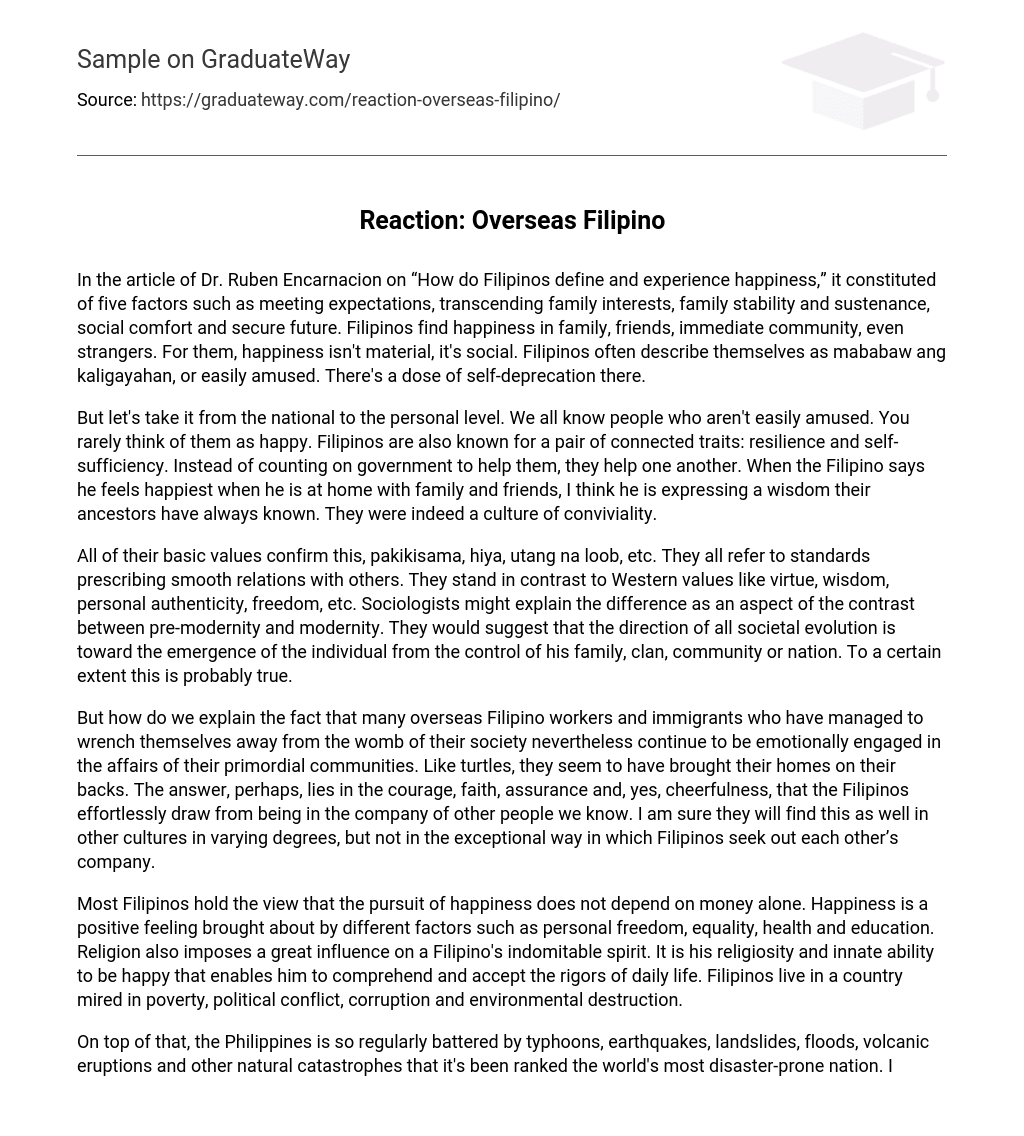In the article of Dr. Ruben Encarnacion on “How do Filipinos define and experience happiness,” it constituted of five factors such as meeting expectations, transcending family interests, family stability and sustenance, social comfort and secure future. Filipinos find happiness in family, friends, immediate community, even strangers. For them, happiness isn’t material, it’s social. Filipinos often describe themselves as mababaw ang kaligayahan, or easily amused. There’s a dose of self-deprecation there.
But let’s take it from the national to the personal level. We all know people who aren’t easily amused. You rarely think of them as happy. Filipinos are also known for a pair of connected traits: resilience and self-sufficiency. Instead of counting on government to help them, they help one another. When the Filipino says he feels happiest when he is at home with family and friends, I think he is expressing a wisdom their ancestors have always known. They were indeed a culture of conviviality.
All of their basic values confirm this, pakikisama, hiya, utang na loob, etc. They all refer to standards prescribing smooth relations with others. They stand in contrast to Western values like virtue, wisdom, personal authenticity, freedom, etc. Sociologists might explain the difference as an aspect of the contrast between pre-modernity and modernity. They would suggest that the direction of all societal evolution is toward the emergence of the individual from the control of his family, clan, community or nation. To a certain extent this is probably true.
But how do we explain the fact that many overseas Filipino workers and immigrants who have managed to wrench themselves away from the womb of their society nevertheless continue to be emotionally engaged in the affairs of their primordial communities. Like turtles, they seem to have brought their homes on their backs. The answer, perhaps, lies in the courage, faith, assurance and, yes, cheerfulness, that the Filipinos effortlessly draw from being in the company of other people we know. I am sure they will find this as well in other cultures in varying degrees, but not in the exceptional way in which Filipinos seek out each other’s company.
Most Filipinos hold the view that the pursuit of happiness does not depend on money alone. Happiness is a positive feeling brought about by different factors such as personal freedom, equality, health and education. Religion also imposes a great influence on a Filipino’s indomitable spirit. It is his religiosity and innate ability to be happy that enables him to comprehend and accept the rigors of daily life. Filipinos live in a country mired in poverty, political conflict, corruption and environmental destruction.
On top of that, the Philippines is so regularly battered by typhoons, earthquakes, landslides, floods, volcanic eruptions and other natural catastrophes that it’s been ranked the world’s most disaster-prone nation. I am certain that the Filipino’s capacity for happiness even in the most adverse circumstances would still be significantly higher than to whatever happens to them. Finally, personal happiness is related on several other factors. Happiness can be achieved through a positive outlook in life and a decision to appreciate it.





